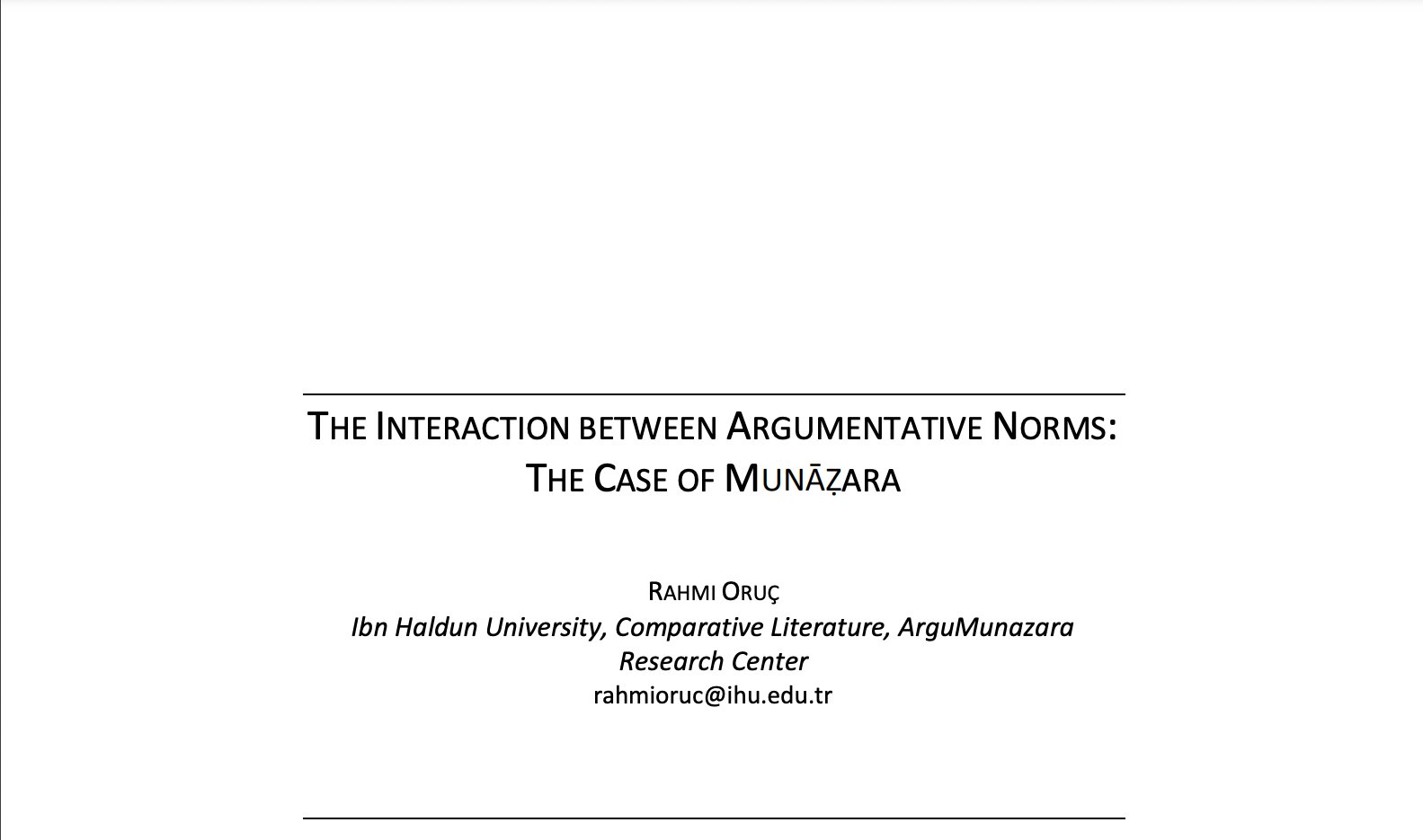


Preprint version of Dr. Rahmi Oruç’s paper for the Proceedings of the 4th European Conference on Argumentation is ready.
The paper was a finalist for the 2022 edition of the van Eemeren Best Paper Prize
You can access the preprint via Researchgate or Academia.
ABSTRACT
In this paper, I argue for argumentative holism against argumentative reductionism by elaborating on the interdependence between norms in Ādāb al-Baḥth wa-l Munāẓara, a seven centuries-old argumentation theory, and practice. Argumentative reductionism is a possible yet undesirable outcome of argumentative perspectivism. Whereas argumentative perspectivism states that argumentation can be examined in logical, rhetorical, or dialectical frameworks with the adjoining norms they require, reductionism highlights one set of norms over others. I first elaborate on the attempts and successful applications of argumentative holism in the case of pragma-dialectics, Johson’s dialectical tier of arguments, and de Grefte’s modal safety norm. I then examine the objections that these proposals face and add my objections if applicable. Building upon these proposals and my objections, I move into Munāẓara. I show argumentation is set to be achieved by the interdependence between product-based, procedural, and agential norms. Product-based logical norms state that: 1) unless incontrovertible, a premise needs defense, 2) an argument can not be flawed, and 3) the standpoint should not admit another counter-argument. The process-based norms state that a strict turn-taking procedure is to be established for argumentation, where -reminiscing Johnson’s dialectical tier- an inquiry is deemed adequate if the protagonist addresses the legitimate critical moves of the antagonist. Having discussed the product-process ambiguity in Munāẓara, I move into the interdependence of agential and procedural norms to values of argumentation made explicit in the sequencing of the antagonist’s critical moves. Values such as coalescent cooperation or performative efficiency are embodied in a certain sequence of the procedure, and they demand a virtuous arguer for realizing them. Finally, as an example of interdependence between argumentative norms, I show how derailments from the procedure can also be characterized as argumentative vices. In Munāẓara, a move amounts to hastiness if the antagonist begins with a counterargument rather than objecting to the premise. It amounts to arrogance when an incontrovertible premise is objected to. It is subjugation when a claim is held true without an argument. Finally, it amounts to usurpation when the onus of proof is shifted. In conclusion, I discuss the wider implications of argumentative holism.